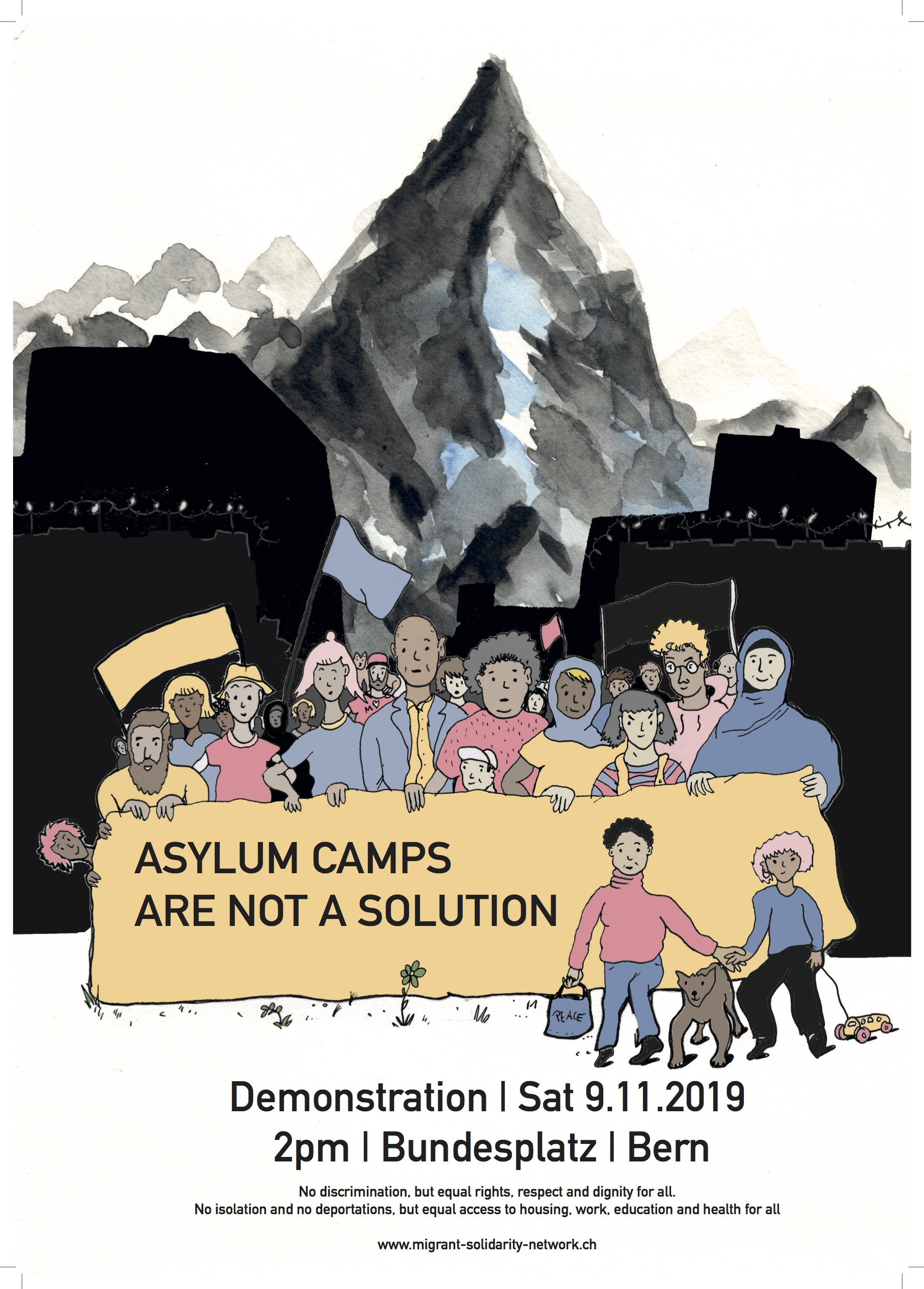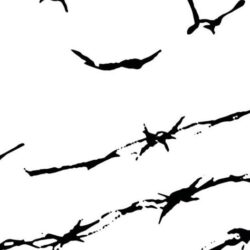9 november | 2pm | Bundesplatz | Bern
Deutsch | Français | English | Persisch | Italiano | Shqip | አማርኛ | русски | Arabisch | Kurdî | Español | Türkçe

- Speeches
- Media:: Vorwärts | Watson | Bund | Berner Zeitung | 20 Minuten | Swissinfo | The world news | L’Evénement syndicale | Le Nouveliste | Arc Info
- Photos
- Testimonials about the life in the camps
- Supporting Organisations
Refugees and/or migrants* need:
- No torture, no death and no barriers because of deals with transit states, but safe flight and migration routes for all.
- No deprivation of rights and catastrophic conditions in the European hotspot camps, but a right to stay and freedom of residence for all
- No discrimination, but equal rights, respect and dignity for all.
- No isolation and no deportations, but equal access to housing, work, education and health for all.
Problems with torture camps in Libya: War, persecution, violence, but also poverty, the climate crisis as well as other reasons can lead to the abandonment of the present home. In the search for safety and a future, (fleeing) migrants* sometimes have to put themselves in even greater danger. In Libya, refugees are imprisoned in camps, tortured, raped and enslaved. Europe and Switzerland not only tolerate these camps but even help finance them through the IOM and Frontex.
Problems with camps in transit countries: Due to pressure from Europe and Switzerland, more and more transit states are cooperating in this European isolation. In Turkey, Tunisia or Morocco (fleeing) migrants* are actively blocked within camps and hindered from passing to Europe. If governments or regimes agree to cooperate in the closing off of Europe, money and political recognition will be given. They talk about migration agreements, we talk about dirty deals.
Problems with the hotspot camps at the EU’s external border: Because the migration routes across the Mediterranean are lethally dangerous as a result of European policy, many (fleeing) migrants* are currently trying to reach Europe via the Aegean Sea. On the Greek islands they are forced into so-called hotspot camps. Because the Greek government and Europe want it this way, the hotspot camps are constantly overcrowded. People live in tents that are too hot in summer and too cold in winter. There are problems with hygiene and there is often a lack of water and food. Also, the access to a fair asylum procedure is not secured in the hotspot.
Problems with the federal asylum camps: Refugees who make it to Switzerland are first isolated in big federal asylum camps. There they have to wait for an asylum decision or for their deportation. The camps are mostly located in remote places, in former military barracks, hospitals or other buildings that cause feelings of insecurity among the population. Federal asylum camps are organized like prisons. Hundreds of people live in confined spaces without any privacy. The obligation to be present in the camp robs people of their freedom. In the camps people are always filmed, controlled and surveilled. The police can arrest people at any time. Friends* or human rights organisations have little or no access to these camps. Those who do not adhere to the strict rules of the camps are severely punished.
Problems with the camps in the cantons: After 140 days in the federal camps, those who have not yet had an asylum decision or have not been deported are transferred to a cantonal camp to wait. Currently, many cantons are worsening the conditions in their asylum camps. Especially the emergency aid camps, where rejected refugees are forced to live, are becoming more and more inhuman. The canton of Berne wanted to place all rejected refugees in a former youth-prison. Only thanks to resistance was it possible to stop the authorities from doing this. In the canton of Zurich, rejected refugees are not allowed to enter (exclusion) or leave (containment) certain zones. In the canton of Schwyz, rejected refugees must testify their presence at the camp three times a day by giving their signature. At the same time they may not enter the camp from 9-17 o’clock. Many refugees and or migrants* have to live in such camps for years. These conditions lead to mental and physical illnesses. Many are frustrated, traumatized or become aggressive.
